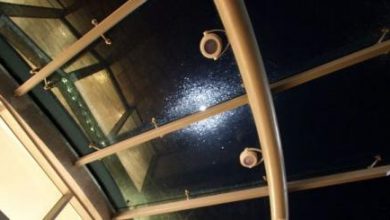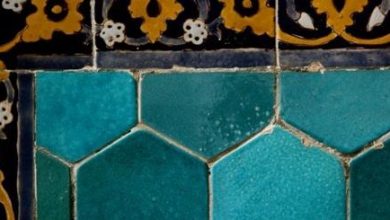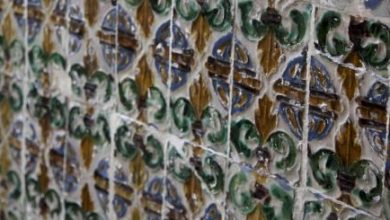FORMING RELATIONSHIPS – WHO DO WE CHOOSE?

INFLUENCE
There are two main factors that shape the development of our personalities – nature v nurture.
The first is our nafs – our genetic characteristics. We were all created with our unique inborn characteristics, impulses, strengths and weaknesses. These natural desires determine our likes, dislikes, a large part of our disposition and our inbuilt strengths and weaknesses. These genetic imprints are known in Arabic as our jibillah. Similar to physical characteristics we inherited, such qualities are ingrained in us.
The second is our external influence. We are a sum of all our experiences and are constantly exposed to situations and circumstances that leave imprints on our dispositions. These include the books we read, the friends we mix with, events that we experienced, as well as our experiences, sensations and ideas.
Many people come in and out of our lives and create an impact on us. There were the ones who raised us, the family that we spent majority of our growing years with, friends we met, our teachers and educators, spouses and colleagues. At different stages of our lives, we come across people who are pivotal in transforming us for better or for worse, and these patchworks of encounters are the ones that make us into who we are today.
Positive And Negative Influence
Each contact, friendship and relationship can have a positive or negative bearing on us. As children, we had little influence over who we connected with, but as we mature, we should learn to be more selective over who we associate with.
The power of influence should not be underestimated. Think of the teacher who educated us, the friend who changed our manner of talking, the parents who influenced our behaviour, the boss who inspired us to do better, the loved one who motivated us with kindness. Think of people who, in their own way, have influenced our mannerism and introduced us to new ideas, hobbies, recipes, books and ways of thinking.
By the same token, recall those who have broken our confidence, destroyed our self esteem, damaged us in some way or made us a develop a bad habit.
The people we meet are not only a reflection of who we are, but should also be an indication of who we want to be. Our lives are like canvases; we want people to decorate them with beauty, not to trample over us with their ugliness. That is why we should filter who we allow into our lives.
Maturity to distinguish influences
Do we have the maturity to distinguish between the positive and negative influences? This distinction is important, because the people we meet can unravel all that we have learnt, overcome or encourage our natural desires, change our way of thinking and bring out the best or the worst in us.
If we are influenced and affected by the right person, that person can bring out our goodness, reinforce our strengths and guide us towards making our lives fulfilling and meaningful. If we are influenced and affected by the wrong person, that person can lead us to emotional, physical and spiritual disintegration.
Whenever we form a new relationship, whether in terms of friendship or marriage, we need to be clear with ourselves on what the goal of that relationship will be.
We can strike up relationships to have fun, learn a new hobby, to be popular and to have a good time. However, we should escalate our awareness to a more insightful level in identifying which of the commonalities are important to us. In that, we should identify our goals, and whether the other person is on the same wavelength in wanting to achieve those goals.
Analyze the consequences
Without a goal in life it is easy to enter into a relationship for the wrong reasons. Without this self-awareness, we end up pursuing relationships, which are empty and do nothing to enrich or improve our lives.
Human beings tend to follow their hearts too easily. When an aim in a relationship lacks any defined yardsticks, it is easy for the wrong types of emotions to take control. Without a defined objective on where we want our lives to go, concepts of right and wrong or good or bad become blurry.
When we allow the wrong influences to enter our lives, we can become unfocused and destabilized. We move towards nowhere, with nothing constructive to show for our relationship. We go with the flow and live for the moment, without any known destination. When we meander too long, we become lost and it becomes difficult to backtrack.
When people do not have a goal to work towards, their relationships become a muddle of conflict, aimlessness and eventually, emptiness. Their relationships have no sense of purpose, and are driven (or destroyed) by emotions and short term thinking. With no internal compass, they allow themselves to be navigated by anyone who gets close to them, without the ability to discriminate whether such direction will benefit them in the long run.
Where one or both do not have a fixed goal, the dynamics will keep changing, both colliding constantly and going in circles, limping along, achieving nothing. Whatever influence such people can exert over us, is likely to be superficial and hollow.
However, if a relationship is based on a firm common goal, there is focus and unity. Both are constantly mindful of what they are trying to achieve, and the relationship is a platform from which they can realize their objectives.
The overarching goal overcomes any deficiencies in their jibillah and keeps their emotions in check. There is clarity in vision, mutual respect and long term vision. The influence that each person in the relationship has on the other is positive.
With the common goal in mind, there is no catastrophic impact, conflict of values or loss of direction on either side. Whether between friends, relatives, spouses, students, colleagues, such a relationship, fostered by a mutual goal as its foundation, will affect everyone in a positive way.




